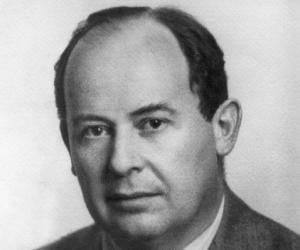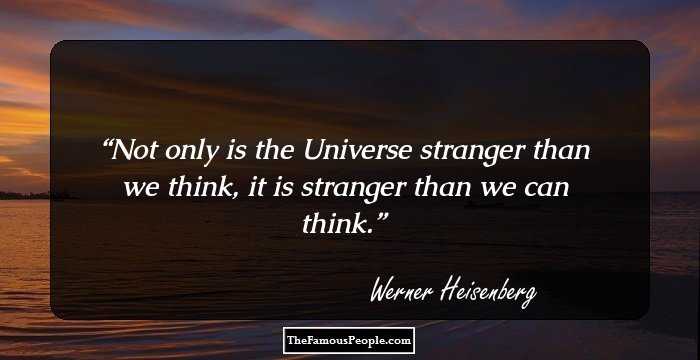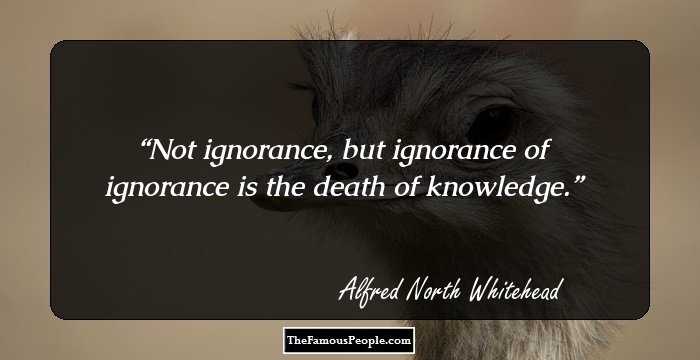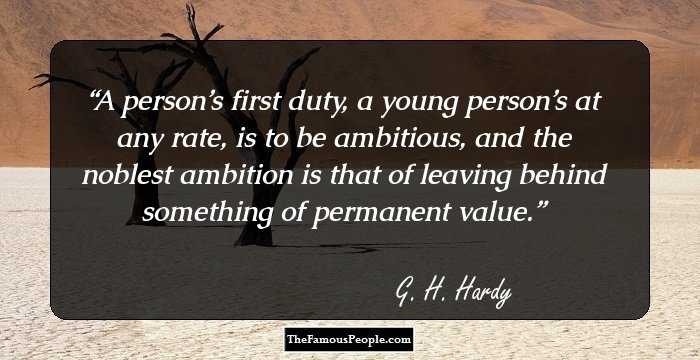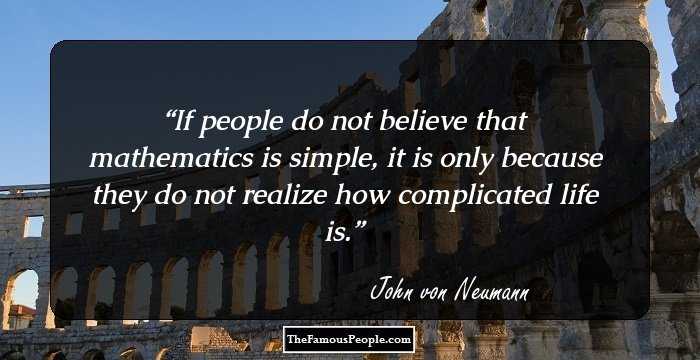
If people do not believe that mathematics is simple, it is only because they do not realize how complicated life is.
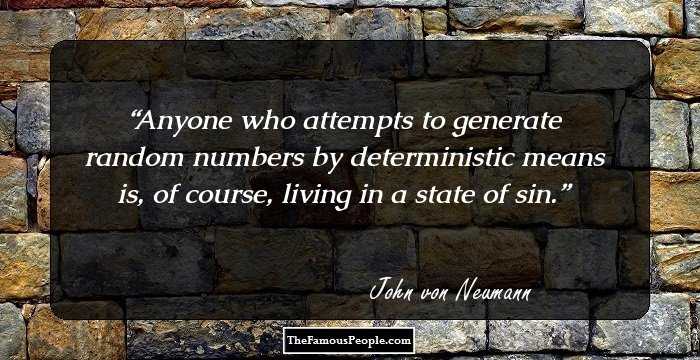
Anyone who attempts to generate random numbers by deterministic means is, of course, living in a state of sin.
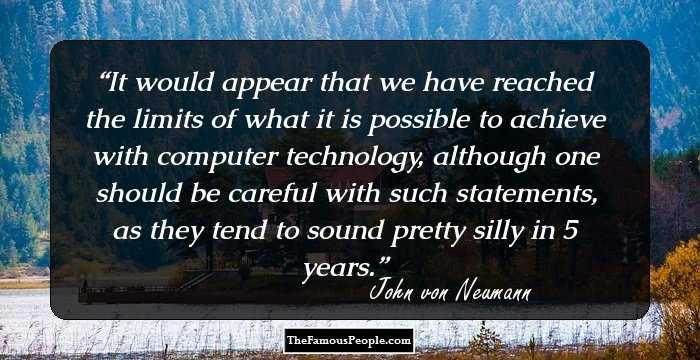
It would appear that we have reached the limits of what it is possible to achieve with computer technology, although one should be careful with such statements, as they tend to sound pretty silly in 5 years.
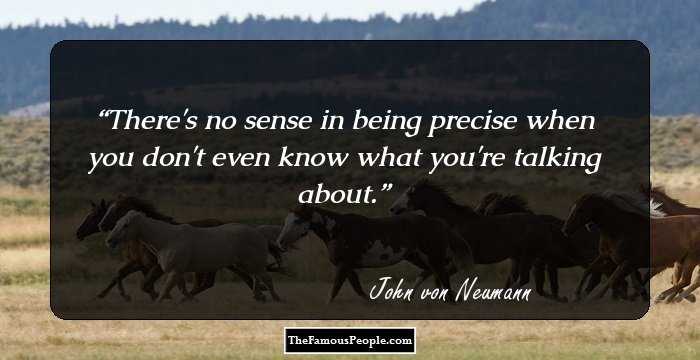
There's no sense in being precise when you don't even know what you're talking about.
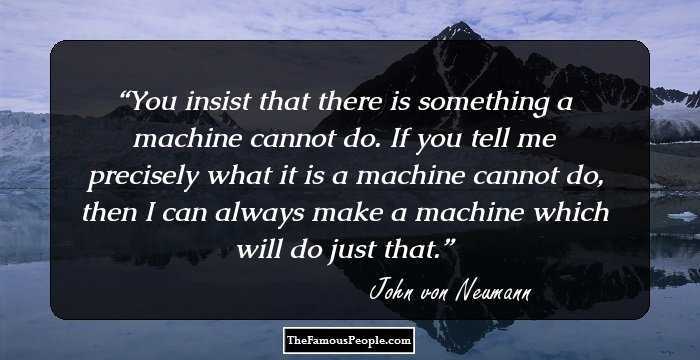
You insist that there is something a machine cannot do. If you tell me precisely what it is a machine cannot do, then I can always make a machine which will do just that.
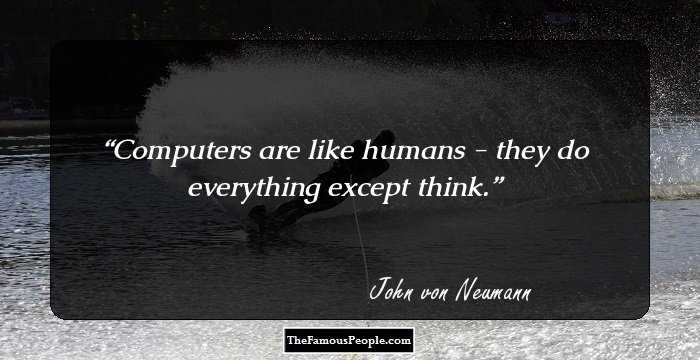
Computers are like humans - they do everything except think.
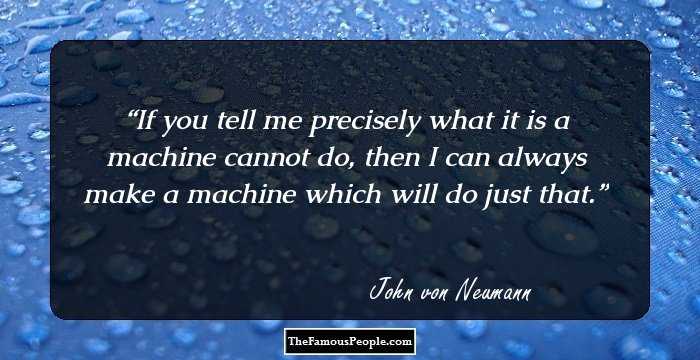
If you tell me precisely what it is a machine cannot do, then I can always make a machine which will do just that.
The sciences do not try to explain, they hardly even try to interpret, they mainly make models. By a model is meant a mathematical construct which, with the addition of certain verbal interpretations, describes observed phenomena. The justification of such a mathematical construct is solely and precisely that it is expected to work-that is, correctly to describe phenomena from a reasonably wide area.
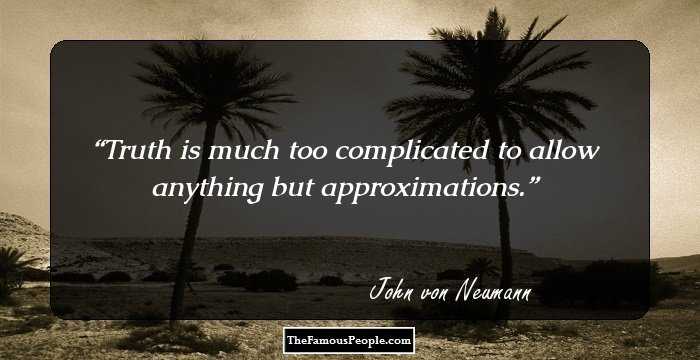
Truth is much too complicated to allow anything but approximations.
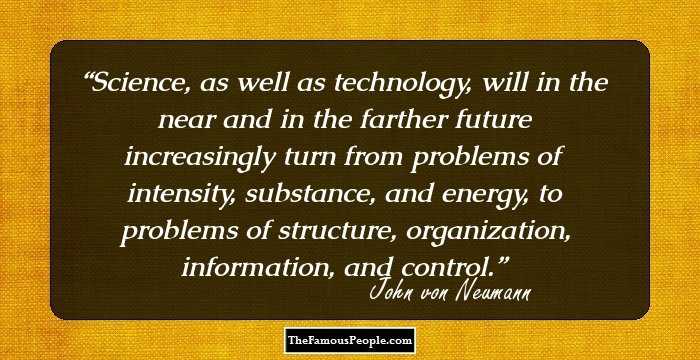
Science, as well as technology, will in the near and in the farther future increasingly turn from problems of intensity, substance, and energy, to problems of structure, organization, information, and control.
The total subject of mathematics is clearly too broad for any of us. I do not think that any mathematician since Gauss has covered it uniformly and fully; even Hilbert did not and all of us are of considerably lesser width quite apart from the question of depth than Hilbert.
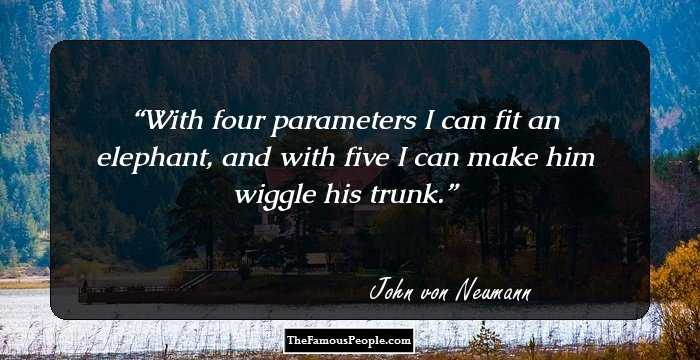
With four parameters I can fit an elephant, and with five I can make him wiggle his trunk.
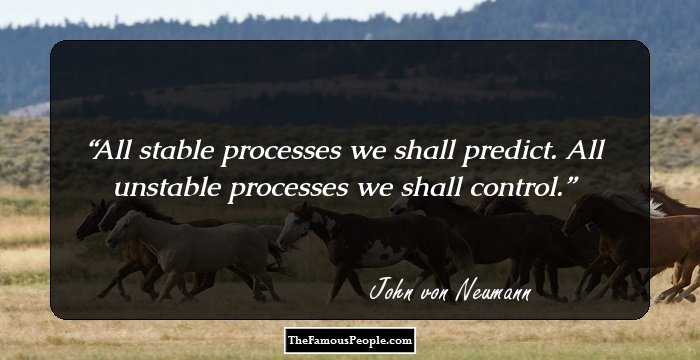
All stable processes we shall predict. All unstable processes we shall control.
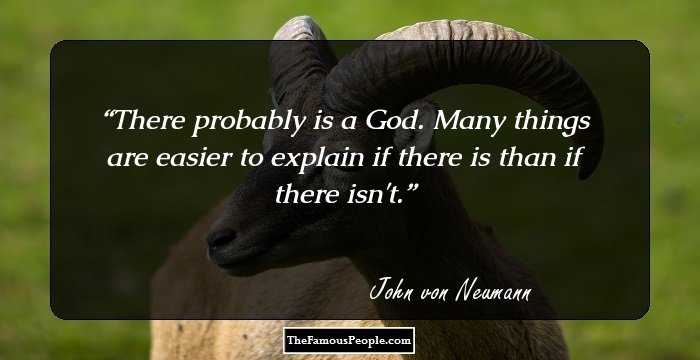
There probably is a God. Many things are easier to explain if there is than if there isn't.
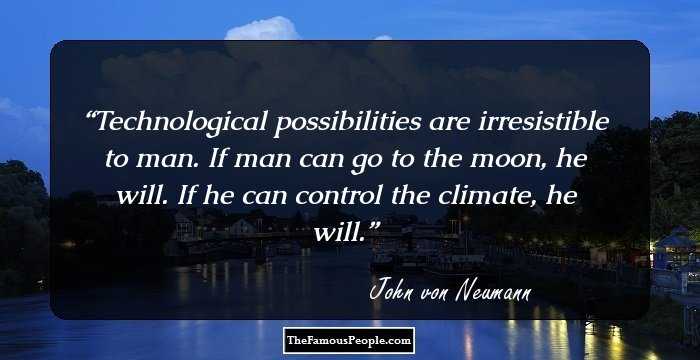
Technological possibilities are irresistible to man. If man can go to the moon, he will. If he can control the climate, he will.
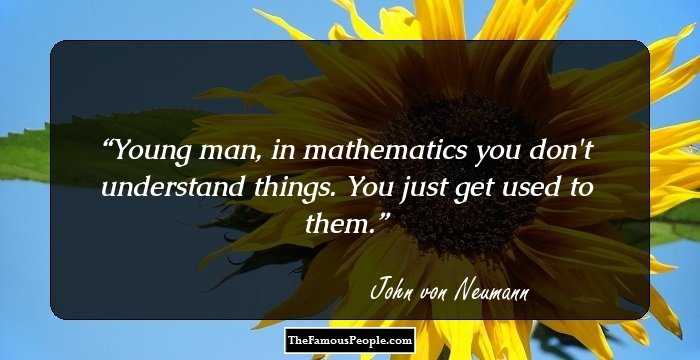
Young man, in mathematics you don't understand things. You just get used to them.
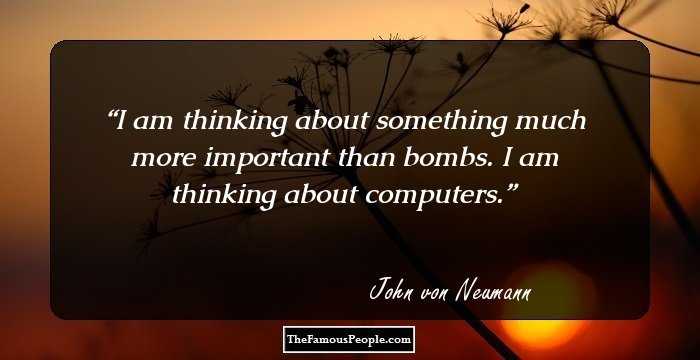
I am thinking about something much more important than bombs. I am thinking about computers.
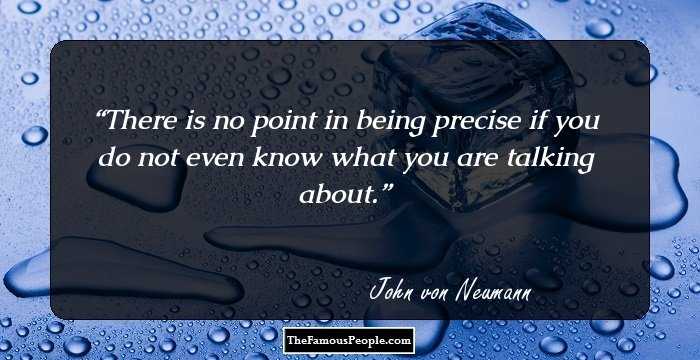
There is no point in being precise if you do not even know what you are talking about.
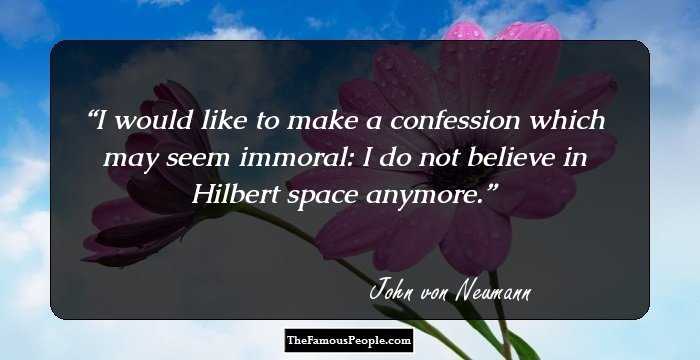
I would like to make a confession which may seem immoral: I do not believe in Hilbert space anymore.
The calculus was the first achievement of modern mathematics and it is difficult to overestimate its importance. I think it defines more unequivocally than anything else the inception of modern mathematics; and the system of mathematical analysis, which is its logical development, still constitutes the greatest technical advance in exact thinking.
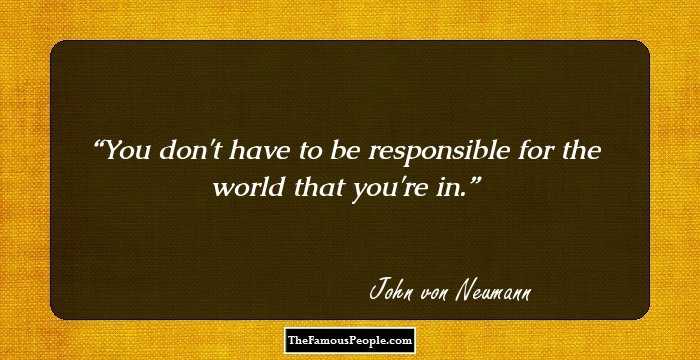
You don't have to be responsible for the world that you're in.
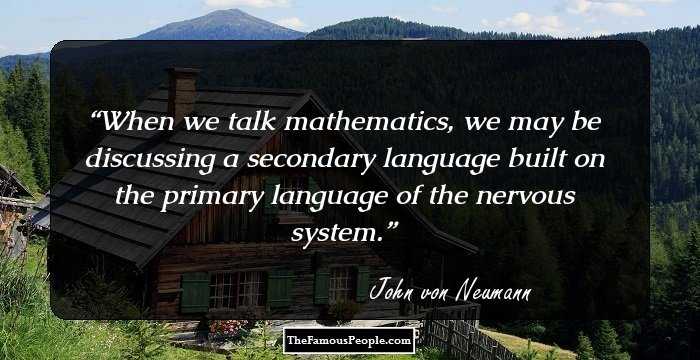
When we talk mathematics, we may be discussing a secondary language built on the primary language of the nervous system.
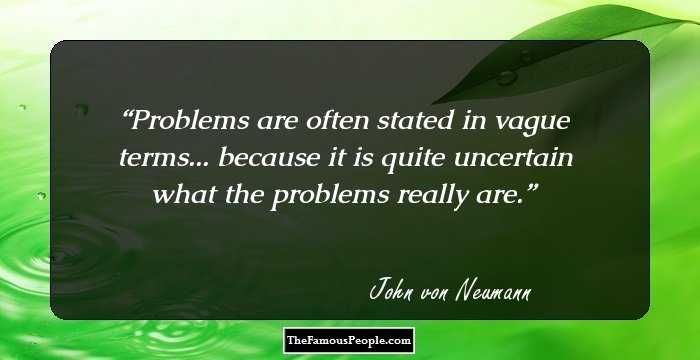
Problems are often stated in vague terms... because it is quite uncertain what the problems really are.
By and large it is uniformly true that in mathematics there is a time lapse between a mathematical discovery and the moment it becomes useful; and that this lapse can be anything from 30 to 100 years, in some cases even more; and that the whole system seems to function without any direction, without any reference to usefulness, and without any desire to do things which are useful.
It is exceptional that one should be able to acquire the understanding of a process without having previously acquired a deep familiarity with running it, with using it, before one has assimilated it in an instinctive and empirical way... Thus any discussion of the nature of intellectual effort in any field is difficult, unless it presupposes an easy, routine familiarity with that field. In mathematics this limitation becomes very severe.
Neumann, to a physicist seeking help with a difficult problem: Simple. This can be solved by using the method of characteristics. Physicist: I'm afraid I don't understand the method of characteristics. Neumann: In mathematics you don't understand things. You just get used to them.
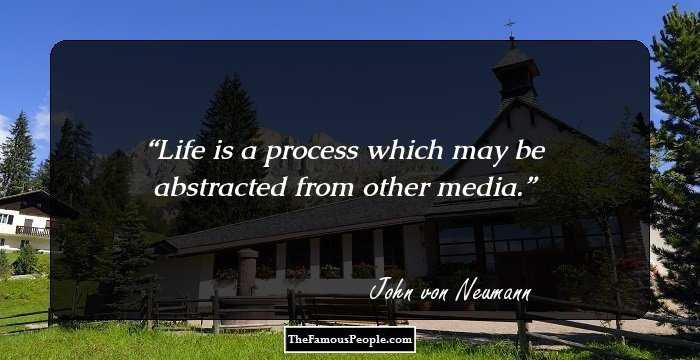
Life is a process which may be abstracted from other media.

You wake me up early in the morning to tell me I am right? Please wait until I am wrong.
Any one who considers arithmetical methods of producing random digits is, of course, in a state of sin. For, as has been pointed out several times, there is no such thing as a random number– there are only methods to produce random numbers, and a strict arithmetic procedure of course is not such a method.
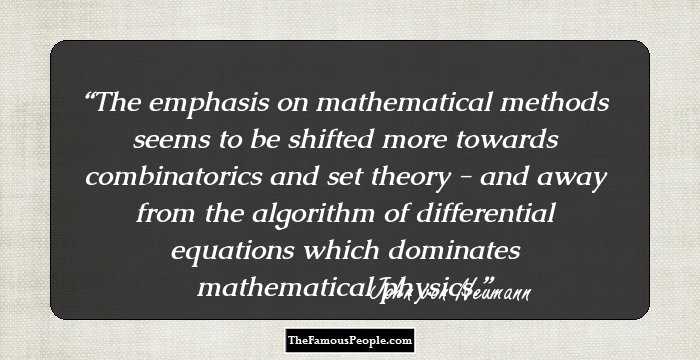
The emphasis on mathematical methods seems to be shifted more towards combinatorics and set theory - and away from the algorithm of differential equations which dominates mathematical physics.

